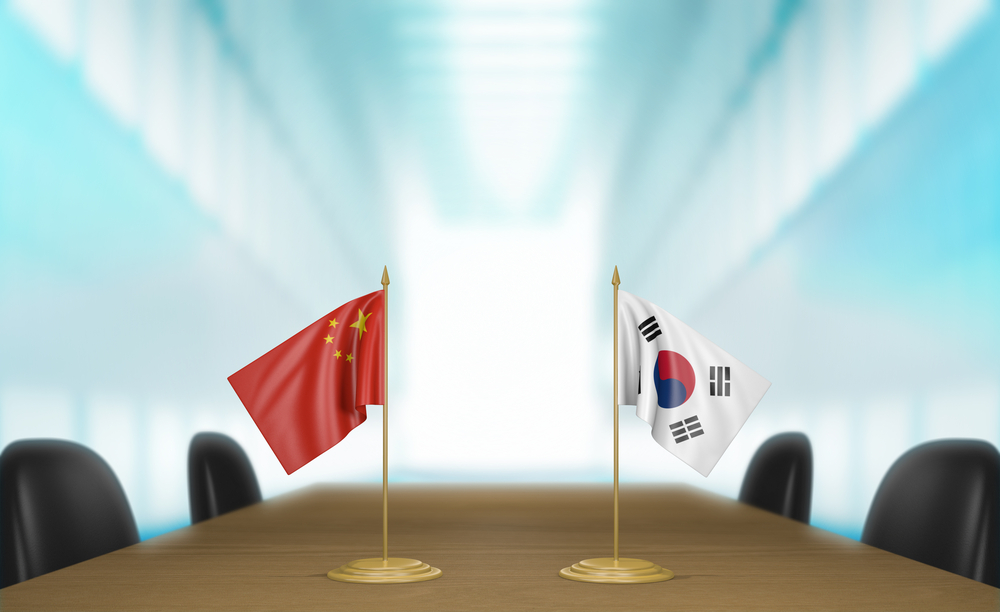South Korea’s Park Meets Xi in Beijing

Please note that we are not authorised to provide any investment advice. The content on this page is for information purposes only.
South Korean President Park Geun-hye will visit China from September 2–4 to attend Beijing’s official activities to mark the 70th anniversary of the end of World War II, including a military parade on 3 September. Her visit comes fresh off the heels of inter-Korean tensions triggered by a North Korean landmine that maimed two South Korean soldiers. Though the situation is calming, North Korea remains a security challenge for both China and South Korea and is likely to dominate talks between Park and Chinese President Xi Jinping.
South Korean President Park Geun-hye will visit China from September 2–4 to attend Beijing’s official activities to mark the 70th anniversary of the end of World War II, including a military parade on 3 September. Her visit comes fresh off the heels of inter-Korean tensions triggered by a North Korean landmine that maimed two South Korean soldiers. Though the situation is calming, North Korea remains a security challenge for both China and South Korea and is likely to dominate talks between Park and Chinese President Xi Jinping. But achieving a long-lasting peace on the Korean peninsula will require nothing short of joint efforts by all major players in Northeast Asia, especially China and the United States.
President Park’s planned visit speaks volumes of how far the Sino–ROK relationship has come since the two countries normalised relations in 1992. For China, South Korea is a good neighbour and reliable friend. Park’s visit demonstrates the warm relationship between the two countries as well as the close personal ties between her and Xi. This is in contrast to relations with North Korea, which while traditionally described as close as ‘lips and teeth’, have deteriorated in recent years given North Korea’s nuclear testing and the execution of Kim Jong-un’s uncle and China point-man Jang Song-thaek.
The China visit makes economic and political sense for South Korea. China has been South Korea’s largest trading partner for over a decade. South Korea trades more with China than with the US and Japan combined. Both South Korea and China are critical of what they see as Japanese historical revisionism: in particular, they are disappointed with Prime Minster Shinzo Abe’s 14 August statement. Their common interest is in peacebuilding in East Asia, a peace built on truthful reflection on the painful past.
For China, Park’s visit also shows that South Korean foreign policy, in contrast to Japan’s, is more independent from Washington. The Japanese media reported that the United States had pressured Park to cancel her upcoming trip to Beijing. Despite denying this, the US government’s concerns are understandable. First of all, the United States does not want to send a signal in favour of China’s sabre-rattling military parade in Beijing. It wants its allies to follow its lead and not attend the parade. And it does not want to encourage China’s potential military adventurism, especially when China is embroiled in territorial disputes in the South China Sea and East China Sea.
Washington is especially concerned about the timing of the parade. The Chinese government has stated that the military parade, part of the 70th anniversary celebration, is not aimed at any particular country. Yet given the delicate state of Sino–Japanese relations today, it may unnecessarily raise tensions in the region. The United States does not have any problem with South Korea developing robust economic and even political relations with China. But it feels deeply uncomfortable when South Korea moves closer to China while Japan–South Korea relations remain frosty. The United States ‘rebalance’ toward Asia is significantly complicated if two of its key allies there are not getting along.
During the upcoming Park–Xi summit, President Park is likely to urge China to play a more active role in persuading North Korea to return to the Six-Party Talks. But China–DPRK relations have been weakening and Pyongyang does not take Beijing’s advice seriously these days. Kim Jong-un will not go to Beijing for the commemoration event, either because he did not receive the invitation from China or because he rejected it. In the midst of the current tensions, North Korea has reportedly claimed that it will not heed Beijing’s call for restraint since such a strategy does not work anymore.
South Korea needs to be realistic and patient. As many have argued, China’s leverage over North Korea may have been overrated. It really will take concerted efforts by all major players, including efforts to revive the China–Japan–South Korea trilateral summit later this year as well as strong US–China cooperation, to resolve the deadlock on the Korean peninsula. Unfortunately, Beijing and Washington seem to have outsourced their responsibilities to each other regarding the North Korea issue. They seem powerless or uninterested in dealing with North Korea and its young leader now.
Two events in 2015 have both raised hopes and created frustrations for observers of the Korean peninsula. The first was the international agreement reached by the United States, China and other major powers with Iran over the latter’s nuclear program; the other was the resumption of diplomatic ties between the United States and Cuba after decades of hostility. When can a solution to the North Korea problem be found? The latest tensions on the peninsula highlight the urgency of this issue.
With the presidential election season gearing up in the United States, North Korea is unlikely to become a priority issue for the departing Obama administration. China, on the other hand, is suffering from a deteriorating relationship with North Korea and its influence over Pyongyang has drastically declined. In this regard, President Park’s diplomatic activism comes at a critical time and hopefully will lead to positive results on the Korean peninsula in the years ahead.
Ms Park goes to Beijing, but will Xi cooperate on North Korea? is republished with permission from East Asia Forum




